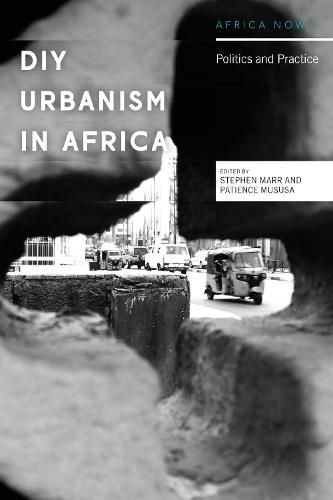Readings Newsletter
Become a Readings Member to make your shopping experience even easier.
Sign in or sign up for free!
You’re not far away from qualifying for FREE standard shipping within Australia
You’ve qualified for FREE standard shipping within Australia
The cart is loading…






Across Africa, protracted economic crises and enduring class stratification have impacted a majority of the continent’s city-dwellers, meaning that urban residents are forced to draw on their own resources and skills, often adopting experimental approaches to sustaining access to services and livelihoods.
This ‘do-it-yourself’ urbanism has generally been appraised through a developmental lens, in which case studies are understood in isolation. In this book, a comparative and cross-regional approach seeks to analyze this phenomenon across the continent, and to gain an understanding of the dynamics of DIY urbanism in a range of cities where urban residents experience economic distress and marginalization.
Does DIY urbanism present a form of resistance, or merely an acquiescence, to the inequalities that make it necessary? And what prospect is there for a radical politics to come out of this grassroots organization, to make cities work better for their poorest, and most marginalised, residents?
$9.00 standard shipping within Australia
FREE standard shipping within Australia for orders over $100.00
Express & International shipping calculated at checkout
Across Africa, protracted economic crises and enduring class stratification have impacted a majority of the continent’s city-dwellers, meaning that urban residents are forced to draw on their own resources and skills, often adopting experimental approaches to sustaining access to services and livelihoods.
This ‘do-it-yourself’ urbanism has generally been appraised through a developmental lens, in which case studies are understood in isolation. In this book, a comparative and cross-regional approach seeks to analyze this phenomenon across the continent, and to gain an understanding of the dynamics of DIY urbanism in a range of cities where urban residents experience economic distress and marginalization.
Does DIY urbanism present a form of resistance, or merely an acquiescence, to the inequalities that make it necessary? And what prospect is there for a radical politics to come out of this grassroots organization, to make cities work better for their poorest, and most marginalised, residents?